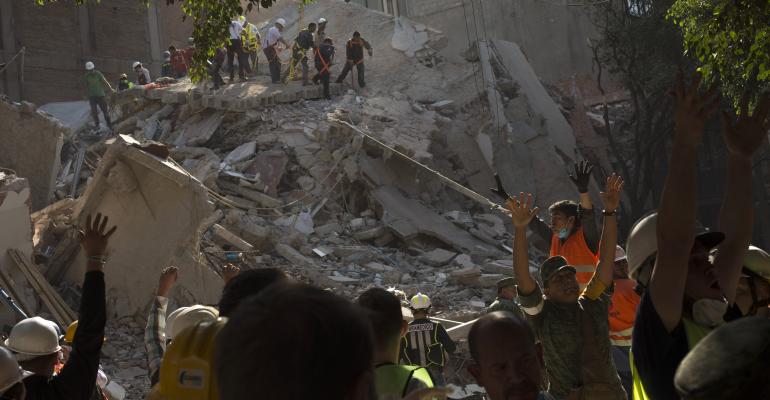For investment funds such as hedge funds and private equity firms, the raft of natural disasters we’ve seen over the past few months—hurricanes in the Caribbean basin and along the Gulf of Mexico, the earthquake in Mexico City, fires in California—raise issues of valuing the affected real property, direct lending investments and other assets.
Investment funds recognize that when there is a short time between the natural disaster’s occurrence and the next NAV reporting date it may be difficult to accurately determine the overall effect that the natural disaster will have on the valuations. Many of these investment funds will need time to evaluate their investment portfolios, assess the condition of underlying collateral and determine potential insurance proceeds and other available recovery sources.
With the trend toward a well-defined consistently applied valuation policy, management should consider all information available prior to finalizing the NAV in order to make its best estimate of probable losses that can be reasonably projected within a range of estimates. As asset managers are able to obtain additional information about their investments affected by the natural disaster, loss estimates could change over time and would be reflected in the investment funds’ subsequent NAVs.
We recommend assessing the extent and duration of the impact by considering the specific property, the property market and competitive properties, and the region or country. There are factors we consider relevant to each level of analysis.
The asset
Determine the extent of the damage, identifying and separating short-term and long-term effects. For how long are business operations expected to be impaired by physical conditions at the asset? What are immediate out-of-pocket repairs and operating expenses? If the property damage can be repaired in a timely fashion, consider the valuation prior to the natural disaster and then an appropriate discount to apply over the recovery timeframe.
The industry
Have your competitors also been harmed? What is the extent of their damage? How did the competitive landscape shift? Will the changes in the competitive landscape be likely to persist over time or be temporary in nature? These analyses are useful in developing capitalization rates and growth estimates, which drive discount rates.
The region or country
How is the regional economy affected? For example, if the economic base derives from tourism, how has that sector been impacted and what is the likely timetable for recovery? If the cruise ships and planes that drive the economy are transporting relief and restoration supplies, rather than customers, then a return to normal operations at the asset can be delayed, irrespective of asset-specific conditions. These types of analyses can be useful in developing recovery timing scenarios.
In the immediate aftermath of a natural disaster, information to evaluate an asset is scarce. In assessing the impairment, the analysis of the broader situation may include information from news reports, on-site personnel and trends in market indices such as Case-Schiller for house-price impacts or publically-traded debt or security instruments with similar risk exposure to the impacted area or asset class. These types of information can provide insight into the investment market’s view of the likely severity of impact from the natural disaster.
Fund managers, by the nature of their business, have to respond in a timely fashion to complex and challenging situations. They often need to do so in unique situations where information is limited and valuation practice is not well established. They don’t have the luxury of waiting for things to settle down or for additional market information to be revealed. Assessing fair value in the aftermath of a natural disaster requires flexibility, discipline and an expanded analytic tool chest.
Murray C. Grenville is CEO of Sterling Valuation Group, Inc., which specializes in valuing alternative, non-liquid assets for hedge funds, private equity firms, banks and other financial institutions. Dr. Ron M. Donohue is president and chairman of Hoyt Advisory Services, a real estate consulting corporation. Dr. Donohue is a member of Sterling’s board of advisors.

